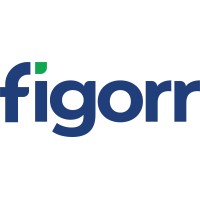Gricd, a tech company that makes Internet-of-Things-powered solutions to help with the last-mile delivery of perishable goods, has raised $1.5 million in a seed funding round.
The purpose of the fund is to help it grow across Africa and deliver new solutions that will make it easier to insure perishable goods on the continent.
The company also changed its name to “Figorr,” which shows that it will now focus on software solutions. The round of funding was led by Atlantica Ventures, and Vested World, Jaza Rift, and Katapult all took part.
CEO and creator of Figorr Oghenetega Iortim said, “This funding comes at a great time for us because it allows us to use the data we have collected over the years to help our customers manage the risks that come with perishable goods on the continent.”
“At a time when the price of everything seems to be going up and the world economy is having a lot of problems, wasting things that don’t need to be wasted shouldn’t make things worse. We’re excited to add more customers across the continent and roll out our solutions to help more Africans get the most money out of their goods and keep their businesses profitable.
Read also: Qualcomm announces 10 African startup companies for mentorship program
IoT-powered solutions from Figorr
Figorr creates IoT-powered solutions that work with existing assets and structures to reduce or get rid of losses caused by transporting and keeping temperature-sensitive and perishable goods in Africa.
Aniko Szigetvari, a Founder Partner at Atlantic Ventures and one of the investors in the round, says that Figorr has done a good job of building the infrastructure needed to ensure high-quality and efficient food distribution and production in Nigeria and Africa.
In order to support the cold chain industry and guarantee the quality of perishable goods and pharmaceutical products in Nigeria and across the continent, Tega and the Figorr team have developed a potent suite of products and services. We’re happy to help the company grow and move into new areas.
The company’s solutions provide real-time data on location, humidity, temperature, and other vital data points, enabling businesses and other stakeholders in agriculture, healthcare, logistics, and other sectors across Africa to maximise the value of perishable and temperature-sensitive goods such as vaccines, insulin, and food.
More about Figorr
Every year, food worth more than $4 billion goes to waste in sub-Saharan Africa because it isn’t stored or moved well enough. At the same time, the World Health Organisation (WHO) says that more than half of all vaccines are lost every year because of problems with temperature control, logistics, and shipping.
This number is probably higher in Africa, where about 60% of the population lives in rural places with few services. At the same time, the lack of standardised storage and transportation processes, as well as a lack of data and clarity on supply chain processes, makes it hard for insurers to make good products to cover the risks connected with this product category.
As a result, businesses and other stakeholders have to shoulder all the risks, which means the cost is passed on to the end customer, leading to comparatively higher prices than in other parts of the world.
Gricd, now called Figorr, is an agricultural technology company that was started in 2022. It helps businesses reduce the loss of goods that need to be kept at a certain temperature by giving them real-time information about storage conditions and the position of assets. This helps create a never-ending supply line for food all over the world, year after year.
Figorr already works with some of the biggest food and drug companies in Nigeria and the rest of Africa to make sure that food and drugs can be moved and stored efficiently. It has been able to track more than 110 million things that go bad quickly and help its customers save more than $200 million.
With this new round of funding, it plans to look into partnerships with insurance companies. Its CEO says this would help businesses that sell perishable goods have some protection in case of a loss.
“Many insurance companies don’t cover perishables because of the high number of losses. All of my customers’ items are lost, so it hits them first.
However, they pass that cost on to consumers. So, some pharmaceutical goods in Nigeria cost three to four times as much as they do in Europe. This is mostly because my customer lost and is just passing the cost on to the end consumer, the CEO said.
Over time, the group has created a way to evaluate the risks of transporting and storing perishable and temperature-sensitive items in Africa. With the new funding, a proprietary risk management platform will provide data that will make it easier to insure perishable and temperature-sensitive items on the continent.
